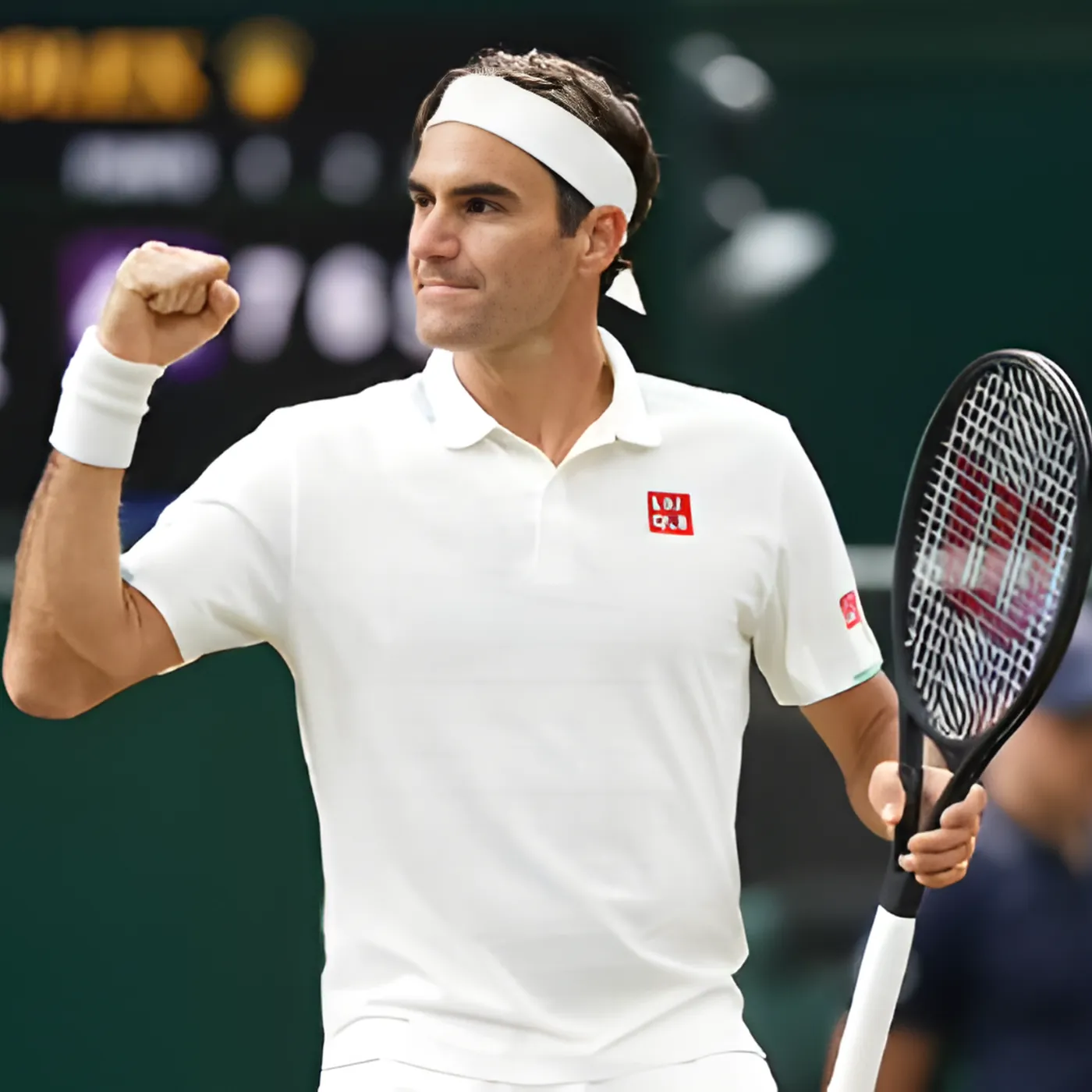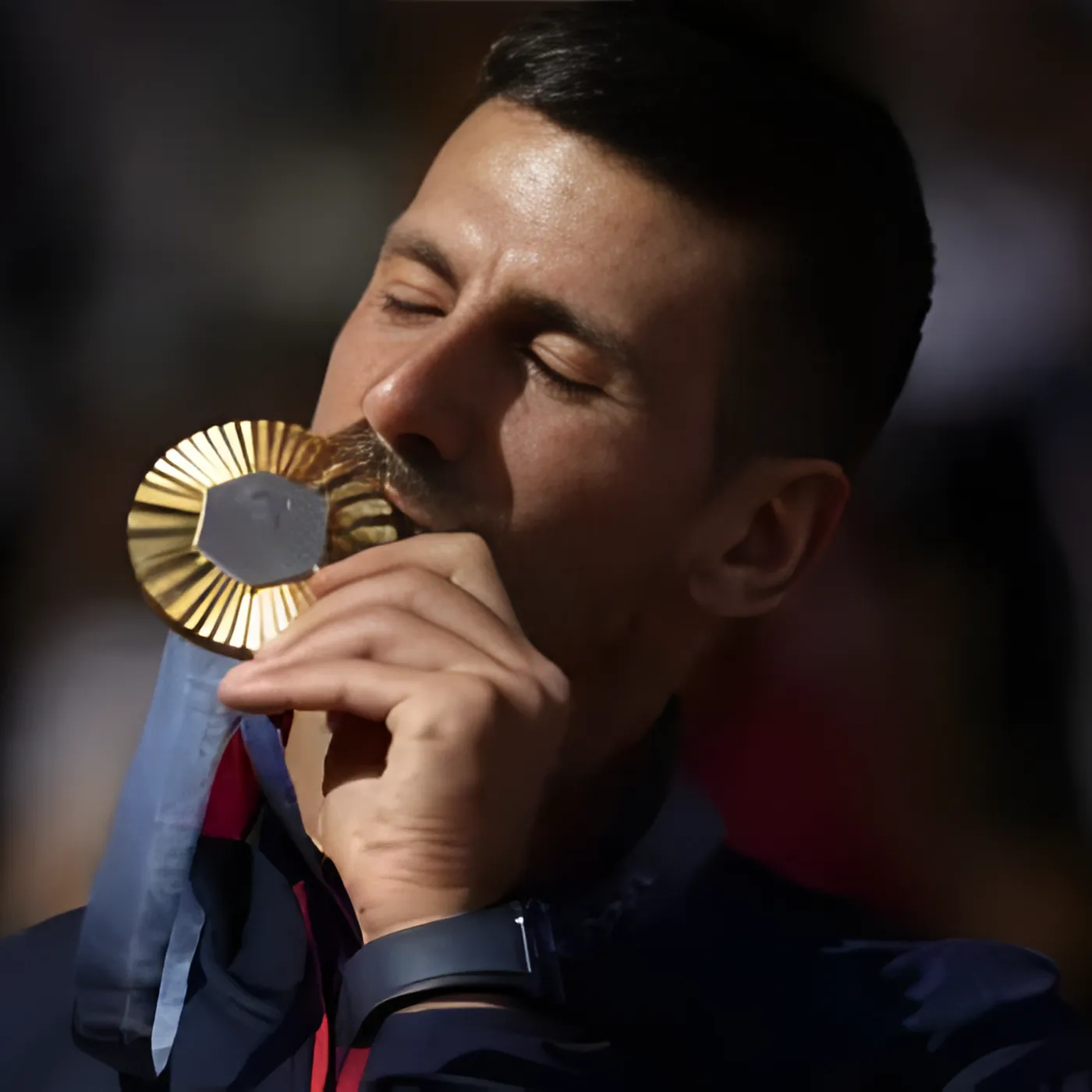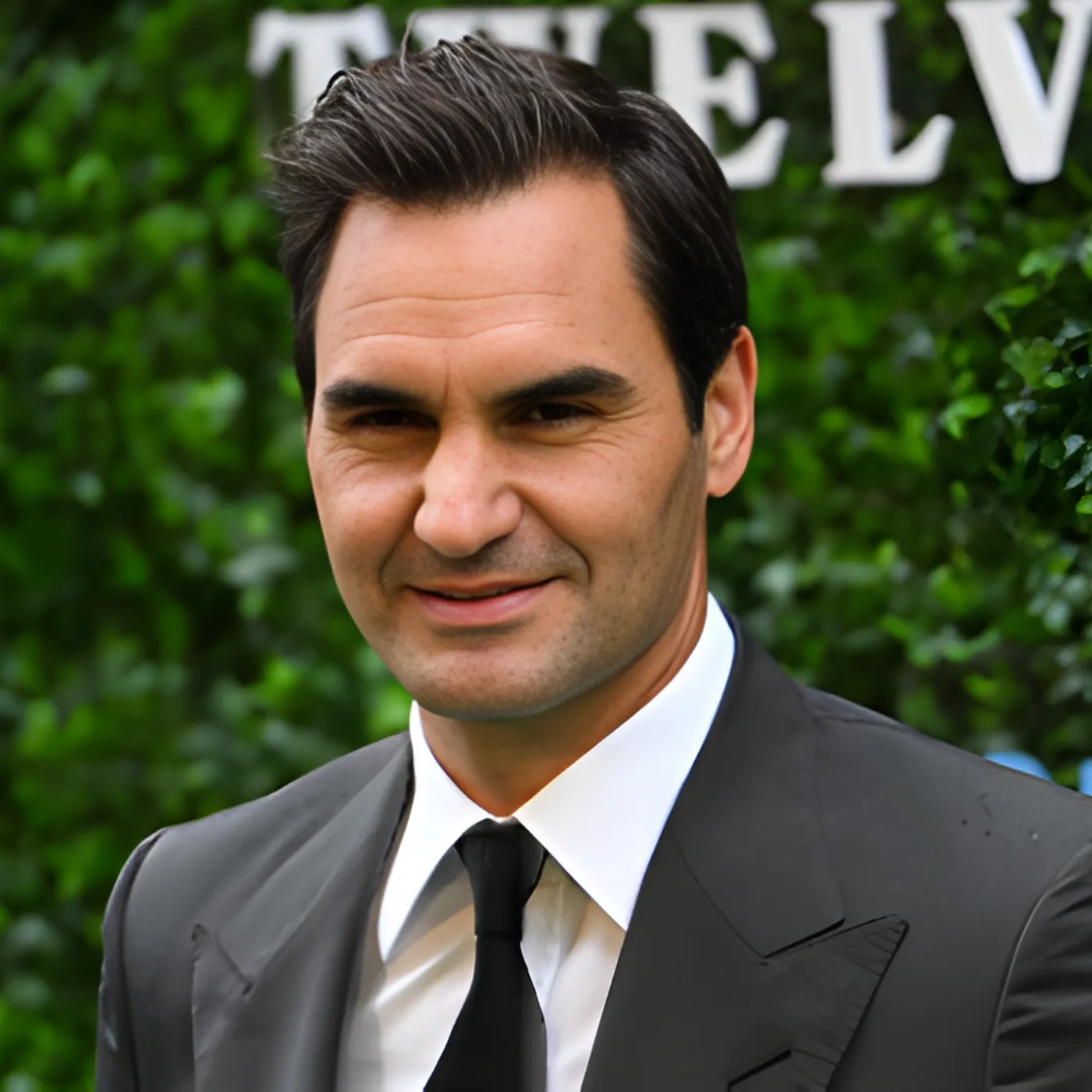
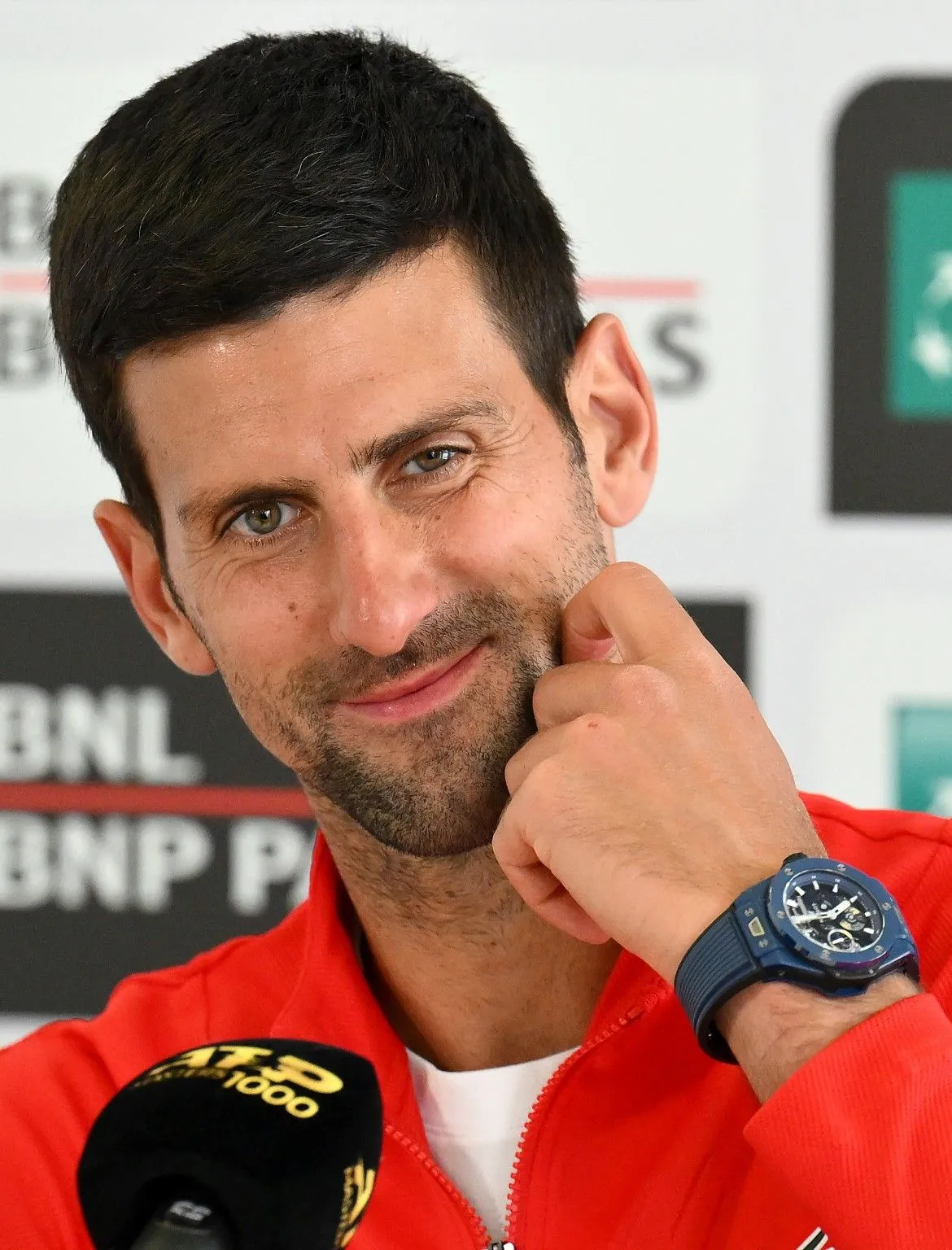
Novak Djokovic Shocks Fans With Humble Message: ‘I Want My Rivals to Break Every Record’
In a sport often dominated by fierce rivalries and relentless pursuit of personal milestones, Novak Djokovic has once again stunned the tennis world. Known for his remarkable achievements and record-breaking career, Djokovic recently made a statement that has left fans and analysts alike in awe. With a sincerity rarely seen from someone of his stature, he revealed, “I want the young guys to break my records — tennis should get better.” This confession reflects not only the depth of his character but also a profound commitment to the growth of the sport he has defined for over two decades.
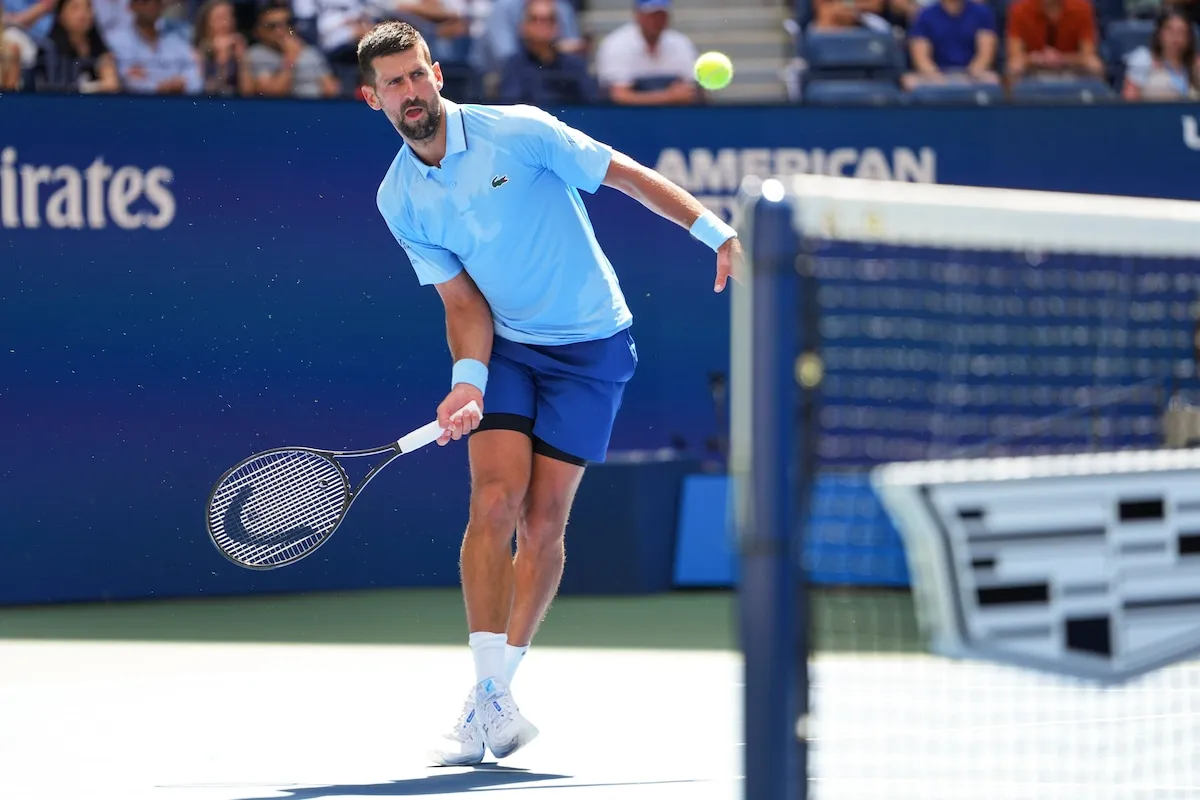
For years, Djokovic has been synonymous with dominance on the tennis court. With multiple Grand Slam titles and a career that has rewritten record books, he stands among the sport’s all-time greats, alongside legends such as Roger Federer and Rafael Nadal. His journey from a young boy in Belgrade to a global superstar has been characterized by unyielding determination, mental fortitude, and an insatiable hunger for excellence. Despite all of this, Djokovic’s recent words reveal a side of him that transcends personal glory: a genuine desire for the next generation to surpass him.
A Career Built on Records and Rivalries
To fully appreciate the weight of Djokovic’s statement, one must consider his career trajectory. Throughout his professional journey, he has consistently set benchmarks that others aspire to reach. His Grand Slam victories, incredible winning streaks, and relentless consistency have made him a symbol of excellence. Yet, Djokovic’s confession highlights a rare humility that often goes unnoticed amidst headlines focusing on rankings and titles. By openly expressing a wish for younger players to break his records, Djokovic acknowledges that tennis thrives when it evolves beyond individual accomplishments.
It is an unusual perspective for a player who has spent years at the pinnacle of the sport. Many athletes, particularly those who have reached Djokovic’s level, often view records as personal legacies to protect, rather than benchmarks to be surpassed. Djokovic’s embrace of the notion that records are meant to inspire rather than intimidate offers a refreshing insight into his philosophy. He does not see the inevitable passing of his achievements as a loss, but as an opportunity for tennis to grow in quality and excitement.
The Next Generation of Tennis Stars
Djokovic’s statement inevitably raises questions about the future of tennis and the emerging talents who might carry the torch. Players like Carlos Alcaraz, Holger Rune, and Jannik Sinner have already begun making waves, demonstrating skill, ambition, and the potential to reach unprecedented heights. Djokovic’s support of these rising stars sends a powerful message: that mentorship and encouragement can be as valuable as victory in shaping the sport’s landscape.
By publicly expressing his hope that the young players will surpass his achievements, Djokovic is not merely offering encouragement; he is challenging the next generation to elevate their game. Such a mindset fosters a competitive environment that pushes the boundaries of what is possible in tennis. Fans of the sport are now witnessing a unique phenomenon: a legend who views his own success not as a final destination, but as a foundation for future greatness.
The Philosophy Behind Djokovic’s Humility
Understanding Djokovic’s perspective requires a closer look at the principles that guide his career. Beyond physical training and technical prowess, Djokovic has always emphasized mental strength, resilience, and adaptability. These traits have been central to his ability to overcome setbacks, from injuries to losses in critical matches. His recent statement about wanting others to break his records reflects the same philosophy: true greatness lies not just in personal achievements, but in contributing to a broader legacy.
This philosophy also aligns with Djokovic’s approach to tennis as a global sport. By encouraging emerging talents, he implicitly promotes a competitive, dynamic, and evolving environment. Tennis, like any sport, thrives when new styles, techniques, and personalities challenge the established norms. Djokovic’s humility, therefore, serves not only as a personal reflection but as a catalyst for innovation and growth within the sport.
Fan Reactions and Media Response
The reaction to Djokovic’s confession has been a mix of admiration, surprise, and introspection among fans and sports analysts. Social media platforms have been abuzz with discussions about the implications of his words. Many fans expressed respect for his honesty, noting that such openness from a player of his caliber is rare. Sports commentators have highlighted the statement as evidence of Djokovic’s mature approach to competition, emphasizing that true champions understand the importance of nurturing the sport beyond individual accolades.
Media coverage has also drawn attention to the contrast between Djokovic and other elite athletes who often remain focused solely on personal milestones. By embracing a vision that prioritizes the sport’s overall growth, Djokovic differentiates himself not only as a remarkable player but as a visionary figure in tennis. His words are likely to inspire both current competitors and the next generation of players, setting a precedent for how legends can influence the sport positively off the court.
Legacy Beyond Trophies
While Djokovic’s record-breaking career ensures that his name will forever be etched in tennis history, this recent confession adds a new dimension to his legacy. Beyond trophies and titles, he is now being recognized for his commitment to the sport’s future, his willingness to inspire others, and his acknowledgment that excellence is a collective endeavor.
This perspective also resonates with broader themes in professional sports, where the interplay between legacy and mentorship often defines long-term impact. Djokovic’s openness about wanting others to surpass him demonstrates a profound understanding that records are transient, but influence endures. By empowering emerging talents, he ensures that tennis remains vibrant, competitive, and engaging for fans worldwide.
Personal Insights and Motivations
Djokovic’s humility may also be rooted in personal experiences and reflections. Throughout his career, he has faced numerous challenges that tested not only his skill but his character. From navigating political and cultural pressures to overcoming injuries, Djokovic has learned to value resilience, adaptability, and perspective. His desire for the sport to improve suggests that he views tennis not merely as a platform for personal achievement, but as a shared space where talent, passion, and dedication converge.
Interviews and public appearances have consistently shown Djokovic to be introspective, thoughtful, and committed to mental and physical well-being. His confession about wanting younger players to break his records aligns with these values, highlighting a mindset that prioritizes growth, inclusivity, and forward-thinking. This attitude reinforces the notion that Djokovic’s influence extends beyond the court, shaping attitudes and standards for aspiring players and fans alike.
The Broader Implications for Tennis
Djokovic’s statement has broader implications for how tennis may evolve in the coming years. By expressing a desire for his records to be broken, he encourages innovation in playing styles, training methods, and competitive strategies. Emerging players are now motivated not only to compete with Djokovic but to push the sport’s boundaries, introducing new dynamics that can redefine excellence in tennis.
Moreover, Djokovic’s humility sends a signal to governing bodies, coaches, and young athletes that tennis is a collective journey. Success is not solely measured by individual accolades but by the sport’s ability to engage audiences, foster competition, and inspire the next generation. In this sense, Djokovic’s confession can be viewed as a call to action — a reminder that legends are most impactful when they invest in the future of their discipline.
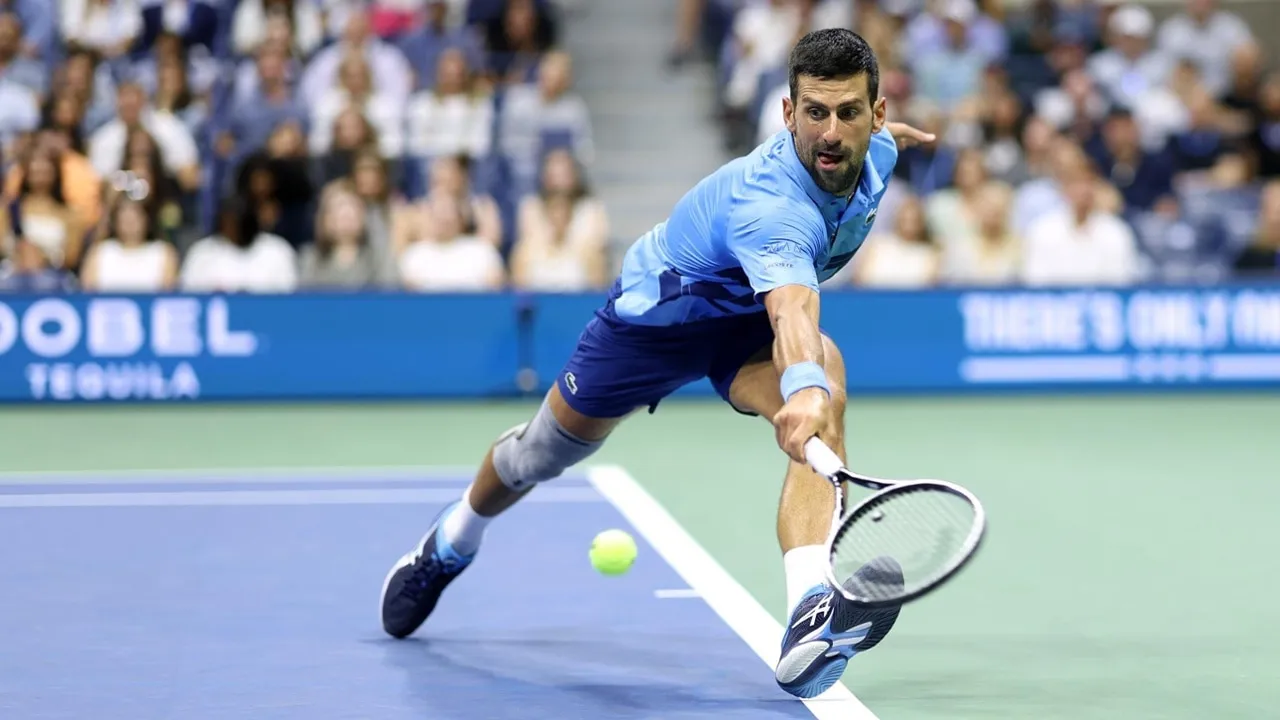
Conclusion
Novak Djokovic’s recent statement about wanting young players to surpass his records represents a remarkable blend of humility, vision, and dedication to tennis. In a career defined by extraordinary achievements, this confession offers a rare glimpse into the mindset of a true champion who values the sport above personal glory. By encouraging the next generation, Djokovic is not only securing his own legacy but also ensuring that tennis continues to evolve, captivate, and inspire.
As fans and aspiring players reflect on his words, it becomes clear that Djokovic’s influence transcends the confines of the court. His vision for a brighter, more competitive future underscores the importance of mentorship, innovation, and humility in professional sports. While records may eventually be broken, Djokovic’s impact — as a player, a leader, and a visionary — will endure, shaping the sport he loves for generations to come.
In the end, Djokovic’s humble confession is more than a statement about personal records. It is a testament to his belief in the power of progression, collaboration, and sportsmanship. By embracing the idea that greatness is not static, he challenges both himself and others to strive for excellence while fostering a culture of growth that ensures tennis will only get better.








